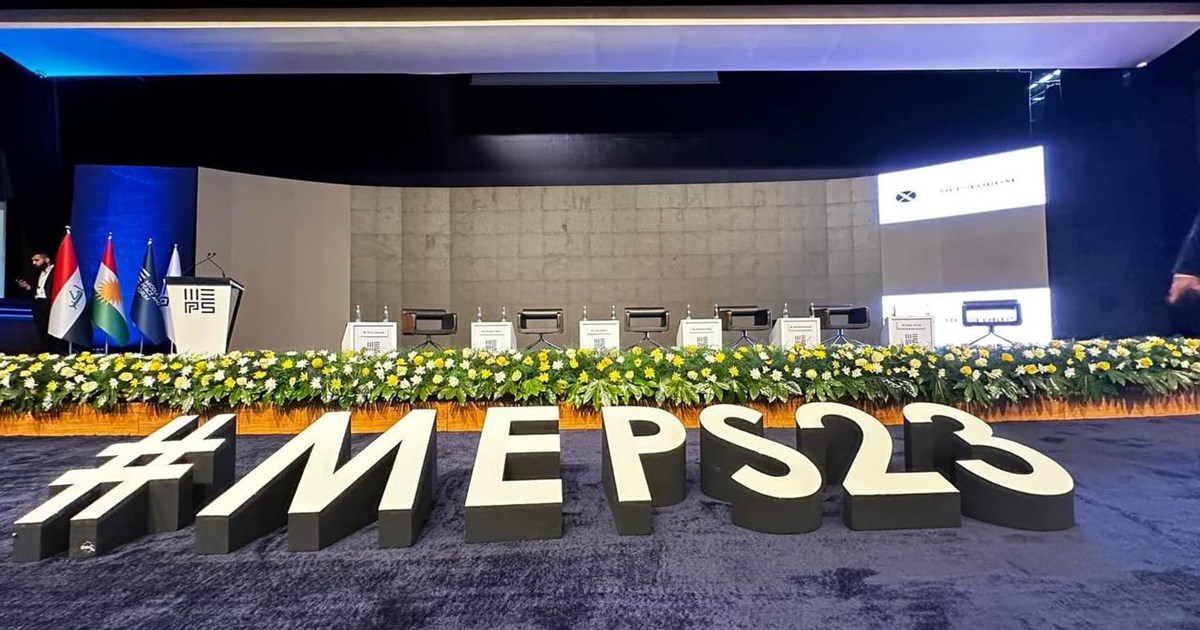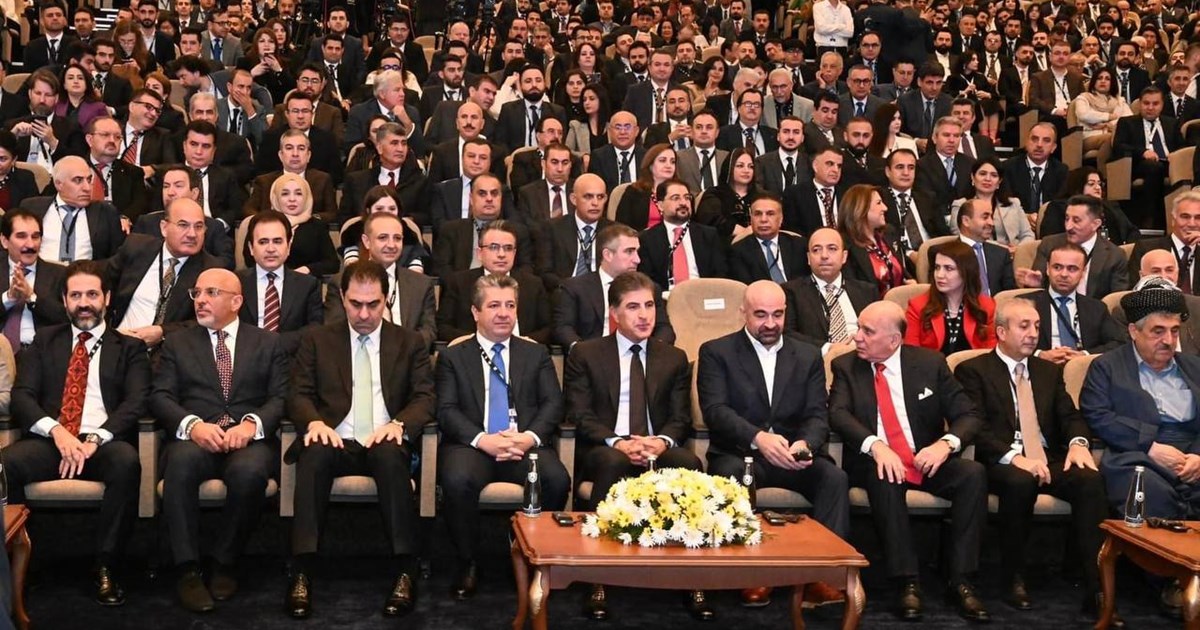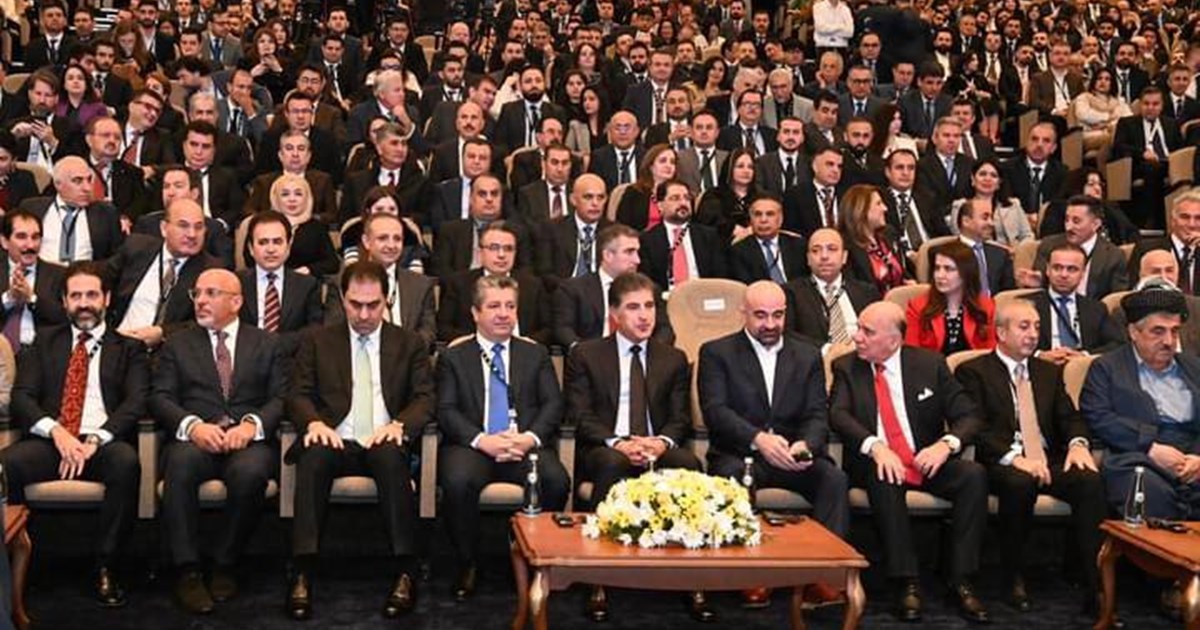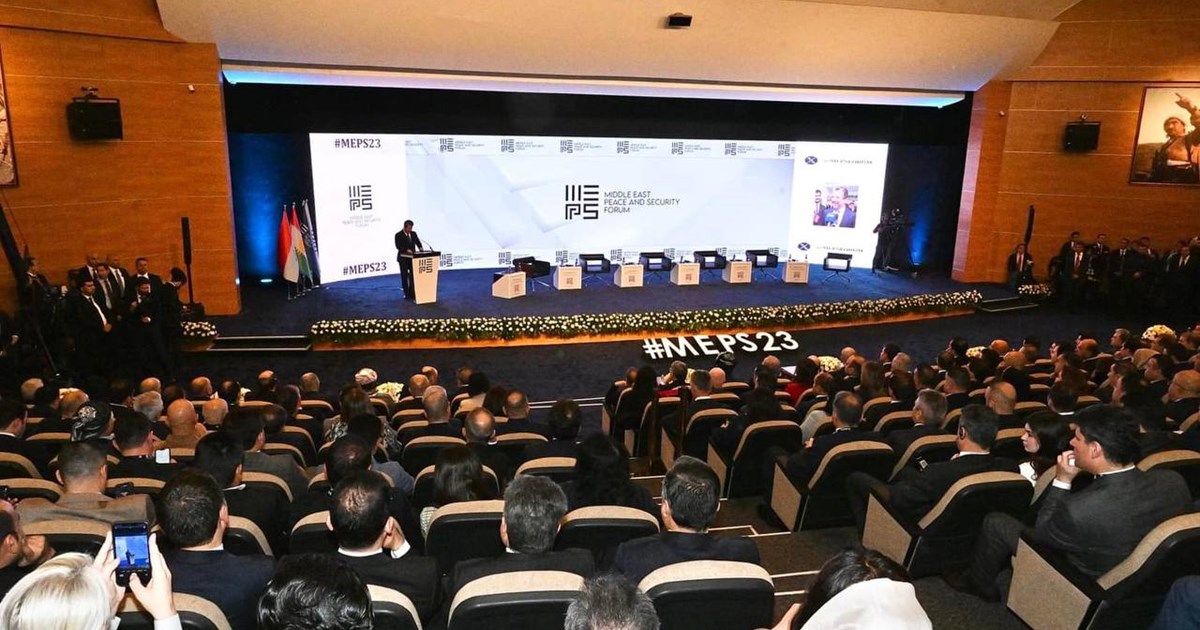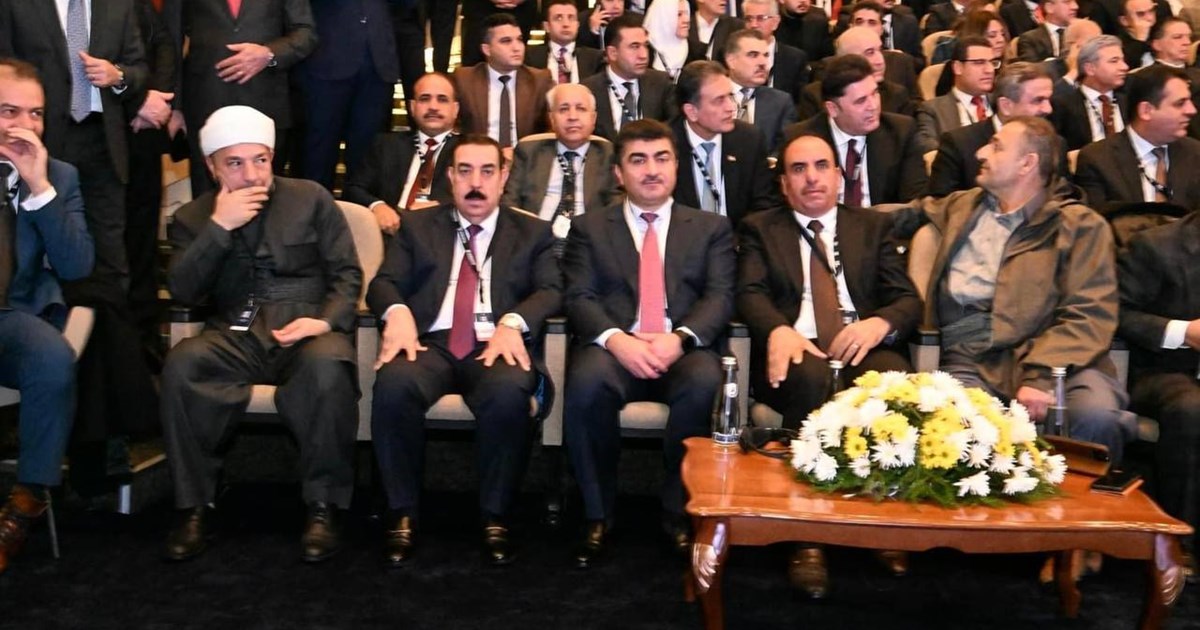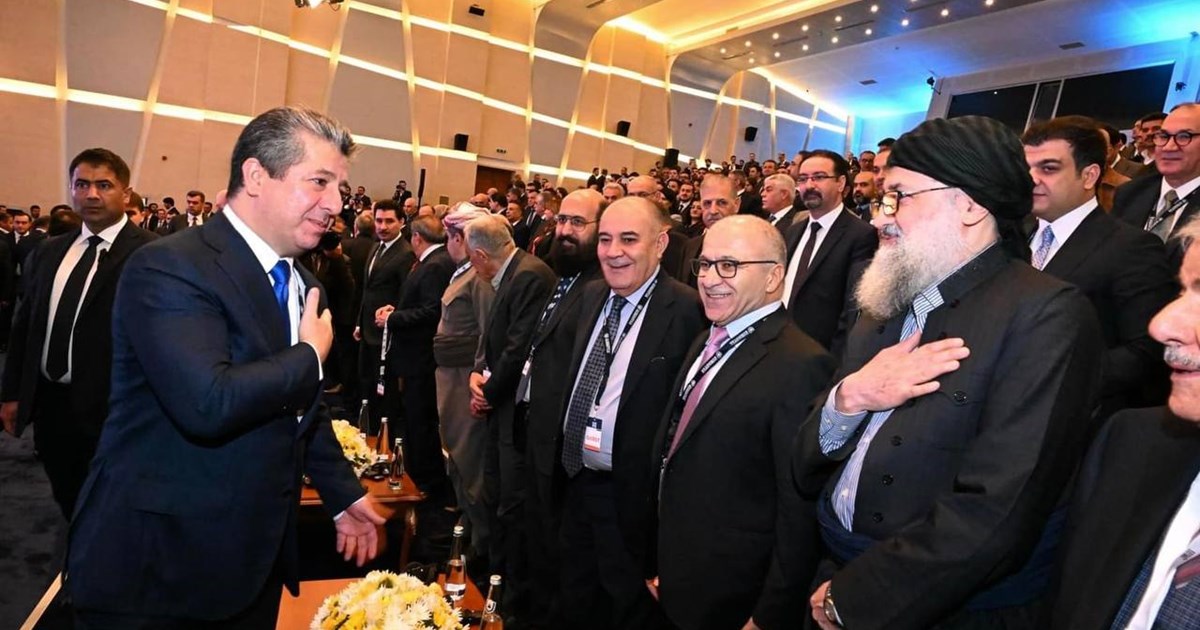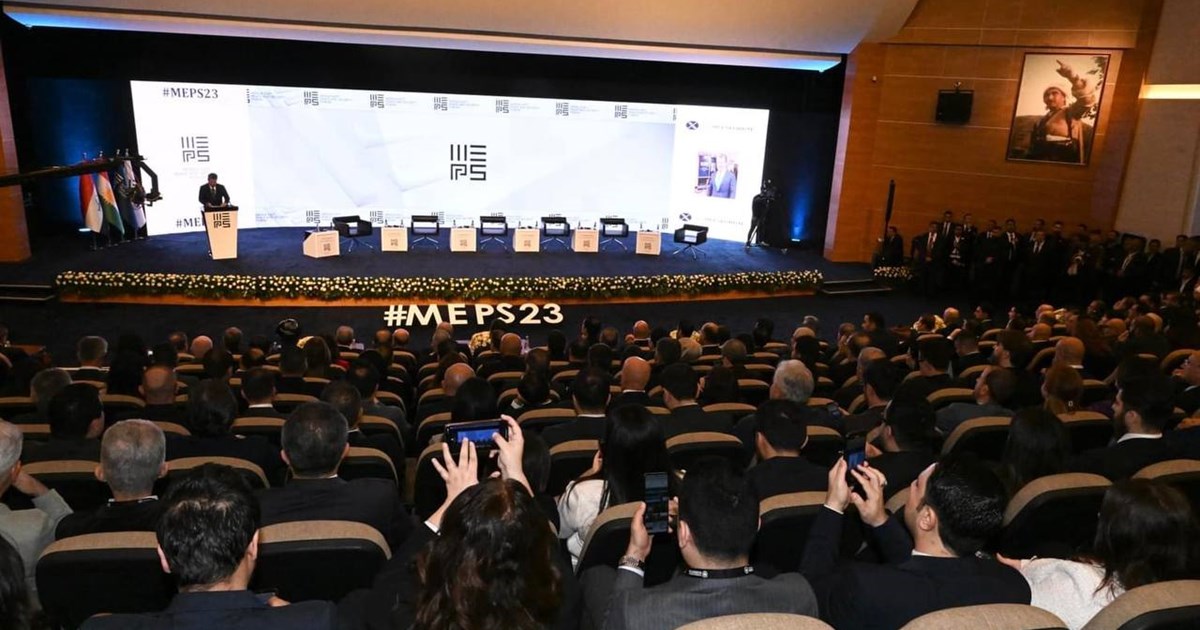MEPS Forum in Duhok Highlights Climate Change Among Key Global Challenges
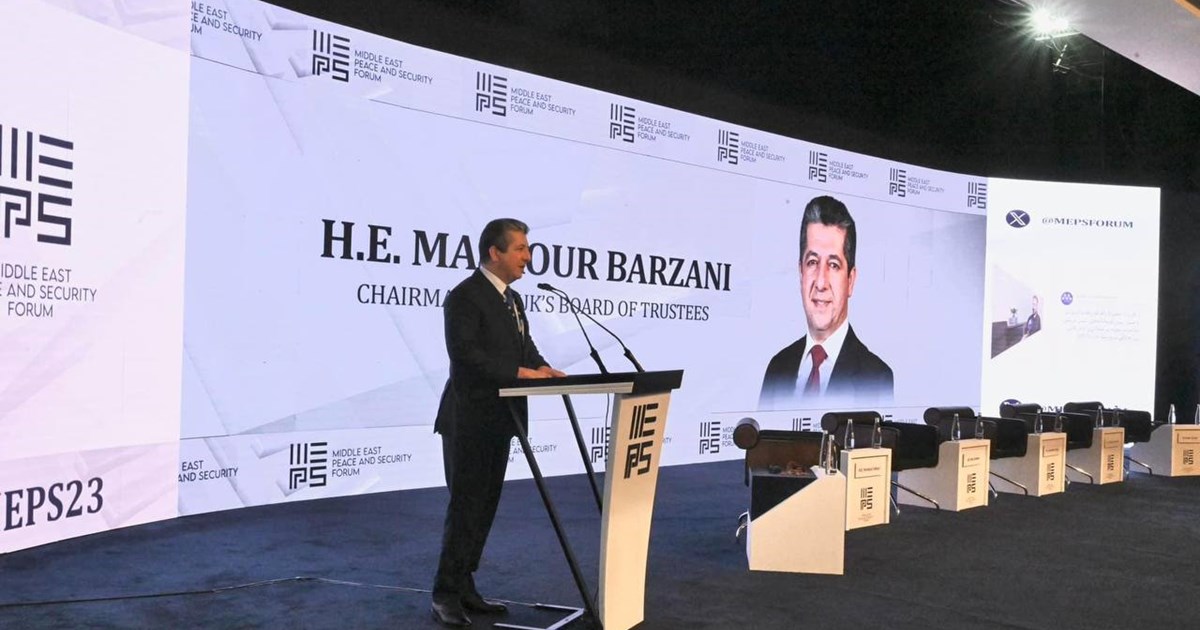
On Monday, November 20, 2023, the Middle East Peace and Security Forum (MEPS) opened at the American University in Duhok (AUK), attended by the Kurdistan Region’s President, Nechirvan Barzani, Kurdistan Regional Government Prime Minister, Masrour Barzani, and numerous politicians, academics, and researchers from around the world.
KRG Prime Minister Masrour Barzani, who is also Chairman of the AUK’s Board of Trustees, inaugurated the forum with a speech emphasising the conference's timely relevance. He highlighted its focus on critical global issues such as climate change, mass migration, extremism, and sustainable management of natural resources.
The Prime Minister expressed his expectation that the forum's discussions would yield insightful and transparent perspectives, contributing to political decision-making processes.
Below is the complete transcript of Prime Minister Barzani's speech:
Welcoming Remarks By H.E. PM Masrour Barzani, Chairman of AUK’s Board of Trustees,
President of Kurdistan Region, His Excellency Nechirvan Barzani
Esteemed leaders, scholars, distinguished guests, ladies and gentlemen,
Good morning,
A very warm welcome to all of you who have assembled here for the fourth meeting of the
Middle East Peace and Security Forum, hosted by the American University of Kurdistan.
Once again, we are joined by an impressive gathering of scholars, business leaders, and decision-makers, all of whom have deep knowledge of our region and a shared commitment to navigating its many challenges. The tests we face as nations and as peoples remain profound. Each and every one of you here today will, at some point in the past year, have spent time confronting many of the issues that we will debate in coming days. And I’m sure, like me, you will at times have wished that the answers were easier than they are.
The agenda put together by the conference organisers does not shy away from a formidable array of issues faced by us all. Topics such as climate change, mass migration, extremism and its drivers, sustainability and systems of governance are all up for debate. And I would expect that some of the discussions here will inform decision making and policy choices. For that is the test of gatherings such as this - how the intellectual heft displayed here can help drive meaningful outcomes.
I am pleased by the regional participation in this conference. To our friends who have travelled from neighbouring states and beyond, I welcome you and look forward to deepening our engagements. Your presence here affirms your commitment to dialogue as a driver of understanding. Whether it be on a local, or global scale, there will never be a substitute for sitting down across a table thrashing out solutions to challenges. We must continue to meet and debate.
Friends,
We must also be prepared to acknowledge that some of the issues that will be debated here are existential to us all. A rapidly warming planet will have cruel implications for our part of the world, fuelling food insecurity, water scarcity and mass migration. This is not a problem to kick down the road. It is happening now. Heatwaves are more frequent. Floods in our lands are happening more frequently, we are having to dig deeper wells to find water. Recent indications show that predictions of temperature rises in the Middle East, made not long ago, will be well short of reality. We need to do better to manage emission of carbon. We have every reason to do so, and no reason not to.
Now is not the time to avoid responsibility or to wish our problems away. We need to act in a collective good, as citizens first and foremost, but with an added global dimension. Remaining wedded to a narrow sense of who we are leaves us ill-equipped to deal with the common challenges facing us all. Kurdistan will not escape the effects of a warming Kuwait. Bahrain and Basra are linked not just by sea - but by a common climate destiny.
Our common humanity demands we confront a warming planet, as it does the scenes of war and deprivation we have witnessed over the decades and continue to witness now.
We can never allow such images to be normalised.
We have all seen heart-breaking videos showing innocent civilians, children and elderly as victims of another devastating war. These scenes must be a wakeup call. Violence on the scale we are observing is never a solution and will not bring peace but endless cycles of destruction and calamity.
We must not only condemn war and violence but find peaceful solutions to outstanding disputes and problems before escalating into military confrontation. We must not wait to solve problems while we can before losing control of events. We must accept each other’s differences and learn to live together with respect and not look for excuses to reject the other side.
We have all been horrified by the renewed violence in the Middle East. But the framing of the decade-old conflicts is also problematic. For example, for 30 years the call for a two-state solution for Palestinians and Israelis has been seen as a just and necessary model. Kurds have also demanded the same rights and dignities, yet our cause has often been forsaken. How do you reconcile resounding support for one just cause and deafening silence for another? It is time to do better. Intractable problems require bold responses. And, as the world looks for ways to turn the Palestinian crisis into an overdue solution, I urge a fresh approach to how we as Kurdistanis coexist with our neighbours.
Recent developments in Iraq are also concerning. Repeated violations of the Iraqi Constitution, and a lack of adherence to the agreement that led to the formation of the current government risks destabilisation, and the re-emergence of sectarianism and divisions among the major constituencies.
Should unilateral decisions continue to be imposed and government institutions continue to be controlled by one group, the feeling of injustice will only deepen. The by-products of these factors; corruption, injustice and poverty will prove fertile ingredients for a return to instability. Insurgency feeds from such conditions.
A wholistic approach to the governance of Iraq and the unfinished business of the region is well overdue.
Friends,
While you are among us, I encourage you to embrace what we have to offer as Kurdistanis. Through you, I extend an invitation to the world to witness the strides we have made economically and the communities that coexist peacefully among us. We have much to show you, and we invite your participation.
As we commence this Forum, I urge you to draw upon the collective wisdom within this room. May our discussions be an impetus for innovative ideas and pragmatic solutions.
Once again, I extend a heartfelt welcome to each and every one of you to the Middle East Peace and Security Forum.
Thank you.

